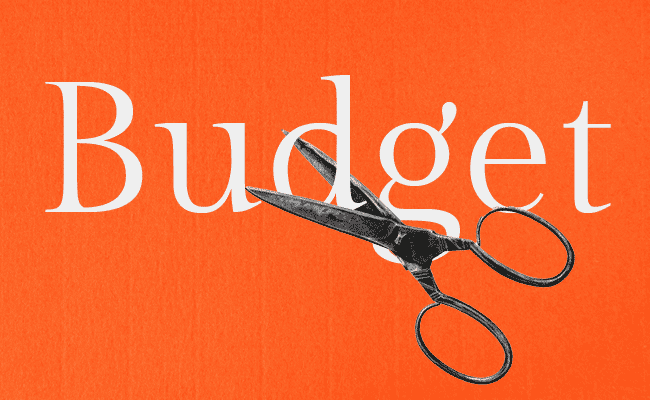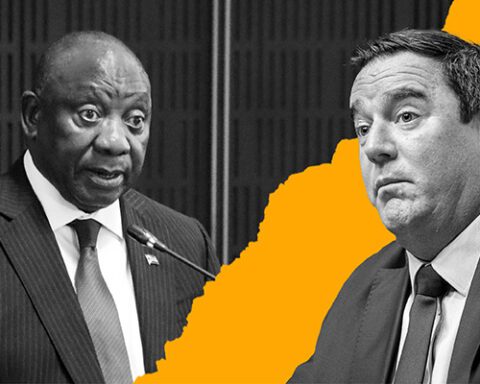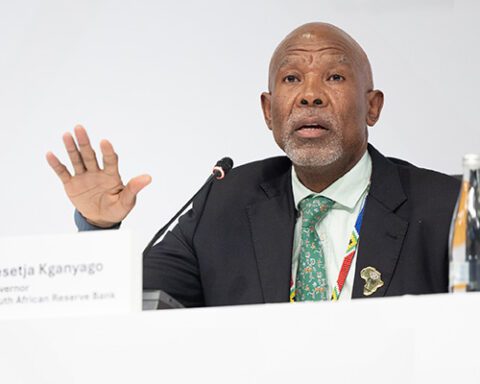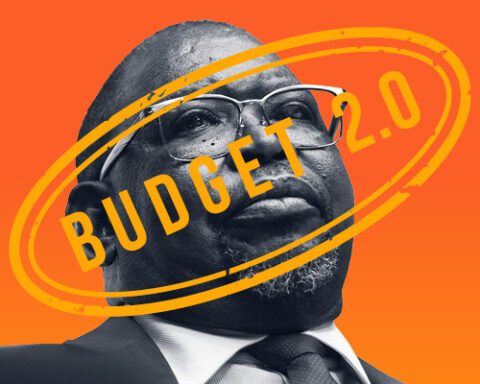Two things emerge out of SA’s three-week budget crisis, and one thing doesn’t.
The two things that emerge are that there is a palpable difference in the tone on the topic of cost containment, and there is a doubling-down on the ANC’s desire to see the private sector jump into government infrastructure projects.
What doesn’t emerge is any kind of actual, concrete cost-containment target – or even a target for when a target might be targeted.
The change between the February 19 budget presentation and the actual delivery on March 12 is very obvious just in the amount of time finance minister Enoch Godongwana spent discussing the idea of an expenditure review.
In the first speech – the one that wasn’t given but the written text of which later leaked out – he devoted a mere two sentences to the notion of an expenditure review.
“Reforms to the budget process are under way to eliminate inefficiencies, waste and duplication,” he said flatly. “This will be supported by spending reviews to ensure programmes are effective, economical and maximise value for money”. And that was that.
In the speech on March 12, he devoted two pages of his 27-page speech to the idea of a spending review. There was even a kind of an apology for being so cavalier about it previously. “We are not deaf to the public’s concern about wasteful and inefficient expenditure,” he said.
But the measures he proposed to fix the problem were not lavish. President Cyril Ramaphosa had undertaken to establish a committee between the presidency and the National Treasury to identify waste, and inefficient and underperforming programmes. The Treasury would change its budgeting process to avoid simple, incremental year-by-year increases.
However, no time was set, at least at this point, for any of these initiatives to deliver results, and no estimate or undertaking was provided for how much might be saved.
Indeed, the actual decline in spending set out in budget documents between the first and second budget presentations suggests very small savings are on the cards. A mere R8.5bn decline in spending has been forecast, in a total expenditure of R2.6-trillion.
Roping in the private sector
What was common between the two versions of the budget was just how much the government is relying on the private sector to come forward and help finance infrastructure projects. Godongwana said government will issue its first infrastructure bond in 2025/26, as well as other “innovative financing instruments to diversify the infrastructure funding sources”.
“Financial institutions including pension funds, banks, development banks and international financial institutions have already expressed interest in participating,” he said.
This comes on top of totally new regulations for public-private partnerships (PPPs) which he said had been finalised and will take effect on June 1. Instead of a single PPP programme run under the auspices of the Treasury, the regulations make provision for national departments to establish sector-specific PPP units.
Clearly Transnet is a major target for something which now even has an acronym: PSP, or private sector participation. The department of transport will be engaging the market on some mammoth PSP projects, including iron ore, chrome, coal and manganese lines, and the expansion of terminals, Godongwana said.
But despite the increased role for the private sector, Business Unity South Africa (Busa) was less than ecstatic about the budget. It was “disturbing” that little mention was made of any long-term proposals to institute meaningful cuts in government expenditure, Busa said in its formal reaction.
“Radical thinking is required or we will be revisiting this problem again and again in future budgets,” Busa said.
It was also worrying that even before Godongwana began his speech, the DA publicly stated it would not support the budget. “We therefore face the real possibility that this budget will not be approved” which “unfortunately increases the levels of uncertainty”.
Read Enoch Godongwana’s budget speech here:
Sign up to Currency’s weekly newsletters to receive your own bulletin of weekday news and weekend treats. Register here.









